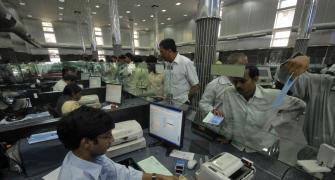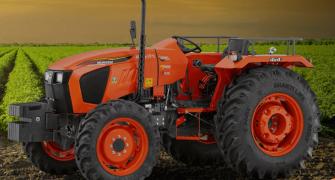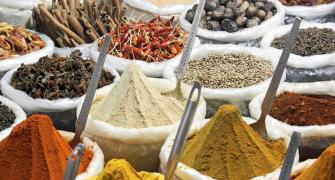 Bt cotton has surpassed 90 per cent of cotton acreage this kharif season with farmers continuing to gain from the high-yielding seed since its commercialisation in 2002.
Bt cotton has surpassed 90 per cent of cotton acreage this kharif season with farmers continuing to gain from the high-yielding seed since its commercialisation in 2002.
Over the last eight years, farmers have got better output through Bt cotton seeds compared to the conventional seeds.
"Although, the final figure is yet to be assessed, we can safely say that the Bt area has crossed 90 per cent of the total cotton acreage this year," said A B Joshi, textile commissioner. India is one of the fastest adopters of Bt cotton, especially after the introduction of Bollgard II, an insect-resistant genetically modified (GM) seed that reduces pesticide use by up to 80 per cent, two years ago.
However, 100 per cent use of Bt may not be possible as a section of farmers continue with conventional seeds, says Joshi.
India's cotton sowing area has increased substantially over the last three years to 110 lakh (11 million) hectares this kharif season, from 103 lakh (10.3 million) hectares and 98 lakh (9.8 million) hectares in 2009 and 2008, respectively.
Ashok Damji Daga, a Coimbatore-based cotton trader, attributed this growth to a significant rise in the minimum support price (MSP) and higher yield in the area under Bt seed.
Till August 26, about 106 lakh (10.6 million) hectares was covered under cotton, thanks to a favourable climate. Total cotton output this year is estimated at 325 lakh (32.5 million) bales (1 bale = 170 kgs) as against 295 lakh (29.5 million) bales in the previous year, according to data by the ministry of textiles.
With mill consumption estimated at 221.5 lakh (22.15 million) bales and export cap at 49.5 lakh (4.95 million) bales, total mill cotton demand in the country is expected to fall to 315.5 lakh (31.55 million) bales this cotton year (October '10 - September '11) as against the availability of 370.5 lakh (37.05 million) bales. Last season, the total demand was estimated at 333 lakh bales against supply of 373.5 lakh (37.35 million) bales.
According to sources at the ministry of textile, the evolution of Bt in the cotton sector has created additional value in the country worth Rs 40,000 crore (Rs 400 billion) until 2008. (Additional value from cotton sector includes income from exports, saving foreign currency through lower imports, technology tax to the government and cheap raw material available for local users, including ginners and textile manufacturers).
India earned Rs 2,800 crore (Rs 28 billion) through exports in 2008, while potential savings through lower imports was at Rs 7,545 crore (Rs 75.45 billion). The user industry earned Rs 500 crore (Rs 5 billion) through availability of locally originating lint which has now become an import substitute.
Availability of cottonseed oil has eased pressure on vegetable oil, while cottonseed meal exports have fetched an additional Rs 3,500 crore (Rs 35 billion).
Processors like ginners earned Rs 720 crore (Rs 7.20 billion). Farmers became rich with an additional income of Rs 20,000 crore (Rs 200 billion) due to higher yield with Bt technology.
Farm labourers recorded a growth of Rs 1,300 crore (Rs 13 billion) and technology providers earned a gross fee of Rs 280 crore (Rs 2.80 billion). Hybrid seed companies shared less than one per cent of the total additional income with a sale of 238 packets worth Rs 110 crore (Rs 1.10 billion).
Jagresh Rana, director, Mahyco Monsanto Biotech (India) said, "Year-on-year, farmers have continued to adopt Bt cotton, which has resulted in higher yields and significant higher incomes."
"Adoption of cotton technology in over 90 per cent of the cotton acreages this year, clearly demonstrates the benefits farmers are experiencing from Bt Cotton. Their increasing vote in favour of Bt cotton technology is an example of how innovation and technology have helped them increase farming efficiencies, get better yields and better income. It is testimony to the fact that there is a growing need to create an environment where farmers have access to more such beneficial technologies."








